Detachment: A Haunting Portrait of a Broken System
A heart-wrenching exploration of isolation, connection, and the failing education system
There are films that entertain, films that educate, and then there are films like Detachment—those that confront you, shake your core, and leave you reflecting on the state of the world long after the credits roll. Tony Kaye’s 2011 film, Detachment, starring Adrien Brody, does exactly that. It's not a film about simple solutions or neat character arcs; it's a brutal, beautiful exploration of human suffering, societal decay, and the silent scream of a disillusioned soul.
A Film About Disconnection in a World Demanding Connection
At its heart, Detachment is a film about the pervasive sense of alienation in modern society, especially within institutions like public schools. We follow Henry Barthes (Adrien Brody), a substitute teacher who floats from one high school to another, avoiding any emotional attachment, both to the students and to life itself. Henry's detachment isn't just from the broken educational system but from everything and everyone. He's a man going through the motions, weighed down by past trauma, struggling to find meaning in a world that seems to have lost its way.
The genius of Detachment lies in its refusal to offer a traditional hero or a clear solution. Henry isn’t here to "save" anyone, nor does he claim to have answers to the deeply ingrained issues plaguing the education system. Instead, we watch him as he navigates a landscape littered with the emotionally scarred—students, fellow teachers, and even himself. It's in these raw, vulnerable moments that the film strikes hardest.
Adrien Brody’s Career-Defining Performance
Adrien Brody’s portrayal of Henry Barthes is nothing short of masterful. Known for his intense roles (The Pianist being his most iconic), Brody channels a different kind of anguish in Detachment. His performance is subtle but deeply affecting, capturing the essence of a man who is both numb to the world and yet quietly devastated by it. Brody conveys so much through his silences—the flicker of pain in his eyes, the weight of his movements, and the exhaustion in his voice all speak to a man on the verge of collapse.
What makes Brody’s portrayal stand out is the delicate balance between hope and despair. Henry’s interactions with the troubled students, especially a particularly fragile girl named Meredith, show a man who still cares deeply, but is too broken to express it fully. In some ways, Brody's Henry is the embodiment of silent suffering, a mirror for anyone who has ever felt overwhelmed by the weight of the world.
Tony Kaye’s Vision: Chaos and Poetry
Tony Kaye, the director best known for American History X, delivers a film that is as chaotic as it is poetic. His use of mixed media—flashbacks, animation, and surreal dream-like sequences—adds layers of complexity to the storytelling. This fractured visual style mirrors the fractured lives of the characters, particularly Henry, who is haunted by his memories, the source of his emotional numbness.
Kaye’s direction is unapologetically raw. He doesn’t shy away from the ugliness of the world, whether it’s the apathy of teachers, the cruelty of students, or the personal demons that haunt each character. But within that ugliness, there’s also a quiet beauty—moments of connection, however brief, that remind us that hope, however fragile, still exists.
The film’s cinematography is equally striking. The washed-out color palette reinforces the sense of despair, while the close-up shots of characters’ faces capture the raw emotion behind their pain. Each shot feels intentional, serving to pull the audience deeper into the dismal atmosphere that Detachment creates.
An Unforgiving Look at the Educational System
Detachment offers a scathing indictment of the American educational system. The students in Henry's classroom are not the idealized versions of troubled teens that we often see in Hollywood films. They are angry, broken, and deeply wounded by a system that has failed them. We see this vividly in characters like Meredith, a sensitive, artistic student whose cries for help are ignored by everyone but Henry.
Kaye doesn’t sugarcoat the failures of the system—teachers are overworked, underappreciated, and burnt out. Students are treated as numbers, with little regard for their personal struggles or emotional well-being. In one of the film's most powerful scenes, Lucy Liu’s character, a guidance counselor, breaks down after trying to help a student, screaming in frustration that no one seems to care. It’s a moment that speaks volumes about the emotional toll of working within a system that seems designed to fail both its students and its educators.
The film makes it clear that Henry’s detachment isn’t just personal—it’s institutional. The system is designed to alienate, to strip away any real connection or empathy. And while Henry tries to reach out to his students, he’s constantly reminded of how powerless he truly is.
Moments of Humanity in a Sea of Despair
Despite its bleak tone, Detachment isn’t without its moments of humanity. One of the most poignant aspects of the film is its exploration of fleeting human connections. Henry’s interactions with Erica, a teenage runaway, are some of the most heartbreaking and tender in the film. Through her, we see a glimpse of Henry's capacity to care, even if he's too broken to admit it to himself.
The relationship between Henry and Erica becomes a metaphor for the film as a whole—two lost souls, adrift in a world that has forgotten them, briefly finding solace in one another. But, like everything in Detachment, this connection is fragile, and ultimately, it’s not enough to save them.
A Cinematic Punch to the Gut
In the end, Detachment isn’t a film that offers easy answers or a hopeful resolution. It's a cinematic punch to the gut, a reminder of the deep flaws within the institutions we take for granted and the emotional toll those flaws inflict on individuals. But within that bleakness, there are moments of profound truth—about the human condition, about suffering, and about the quiet resilience that keeps us moving forward, even when everything seems hopeless.
Tony Kaye's Detachment forces us to confront the uncomfortable reality that sometimes, all we can do is bear witness to the suffering around us. It's not a film for everyone, but for those willing to sit with its discomfort, it's an unforgettable, soul-stirring experience.
Thanks for going beyond the credits with me. Until next time.






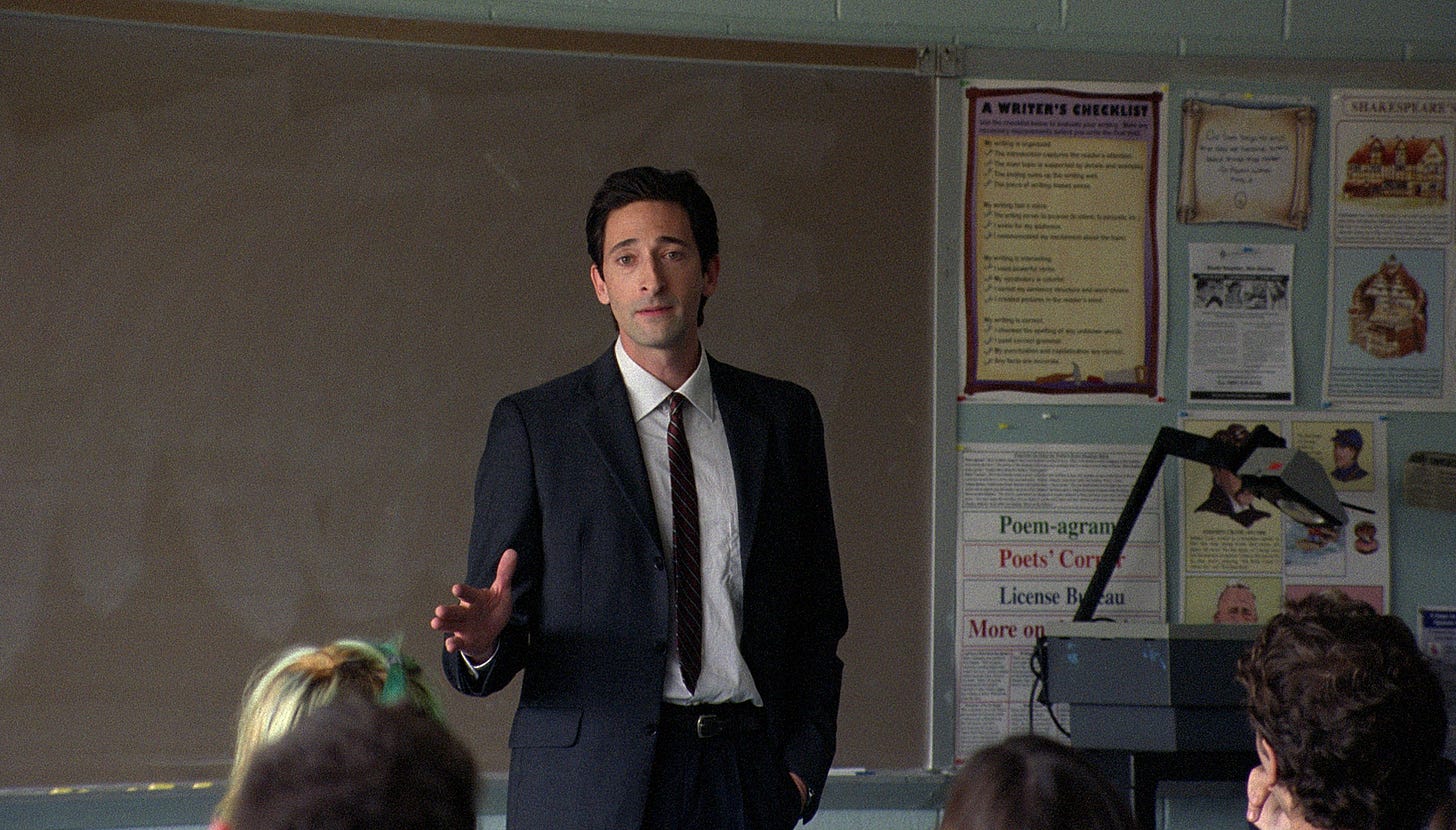

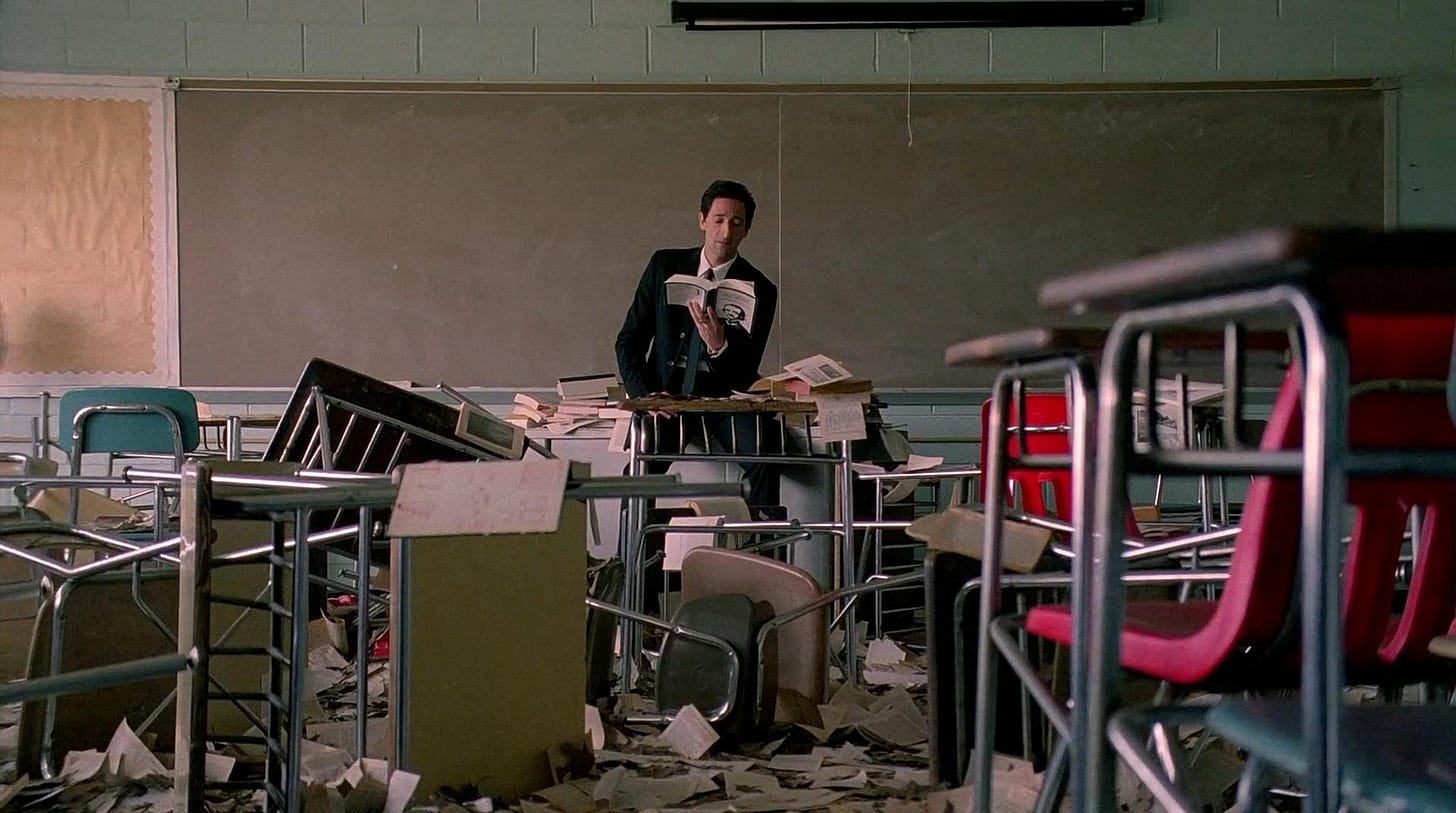
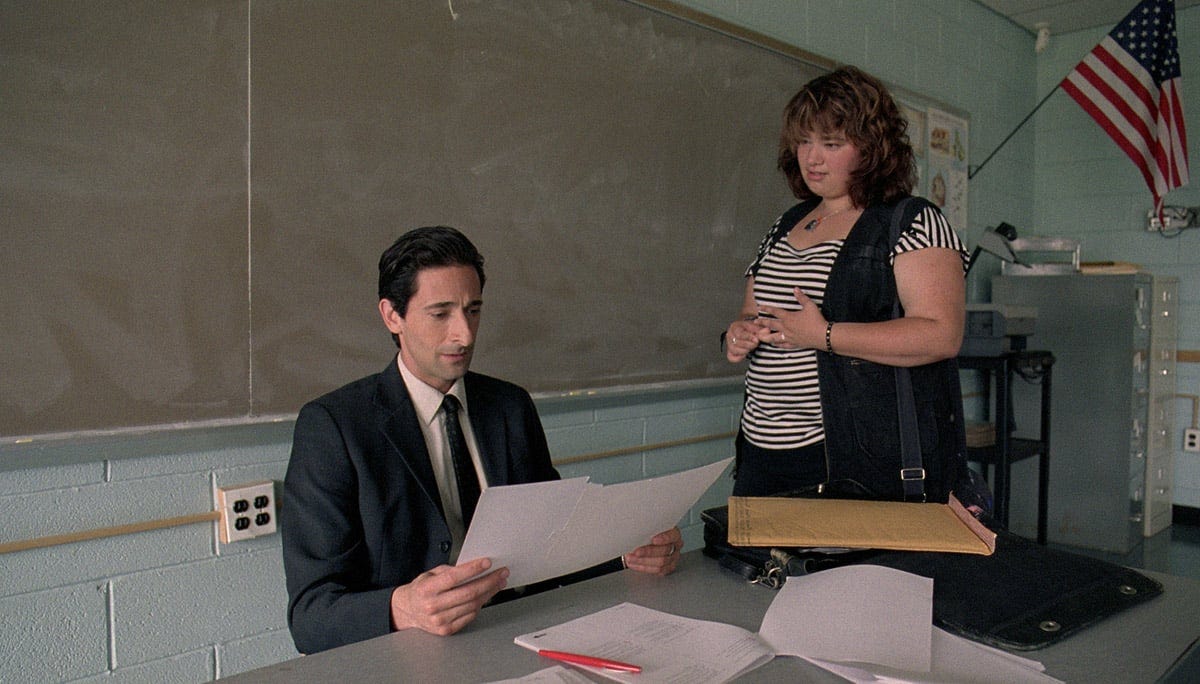
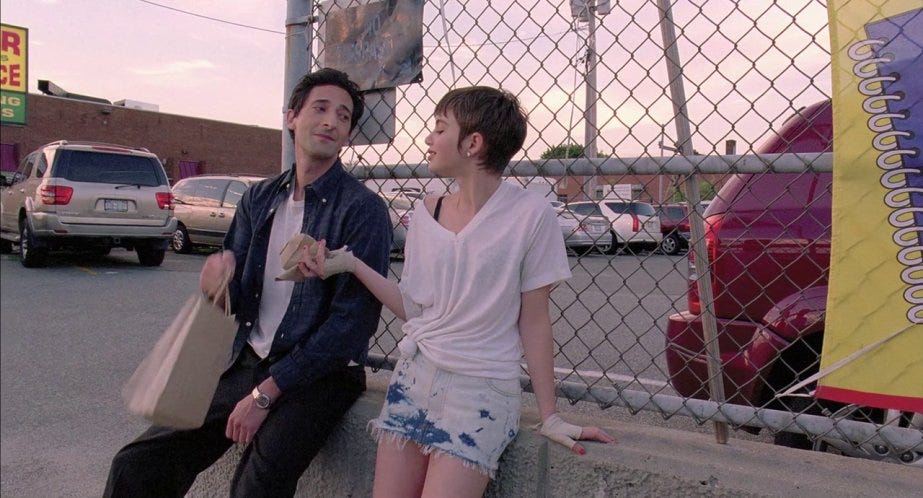
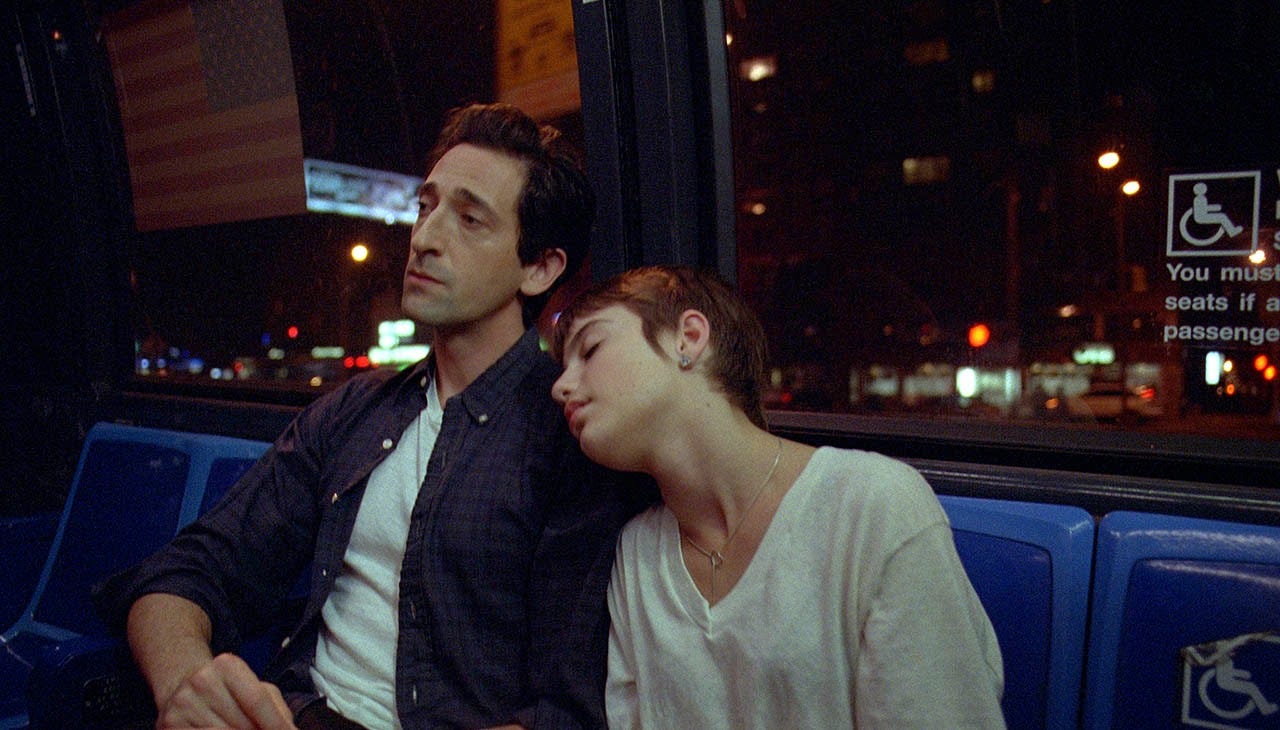

The final sentence of the movie put it all together for me “We don’t understand complexity”. OMG, so true. Thanks for the write up on this film as I hadn’t seen it before!